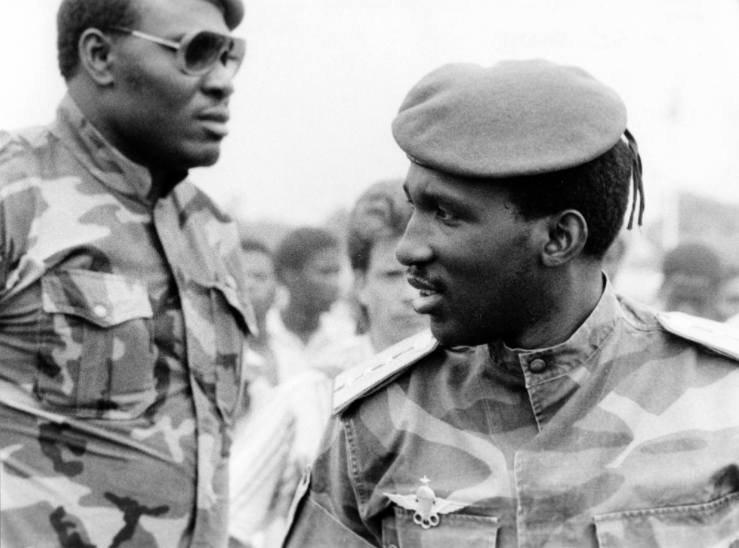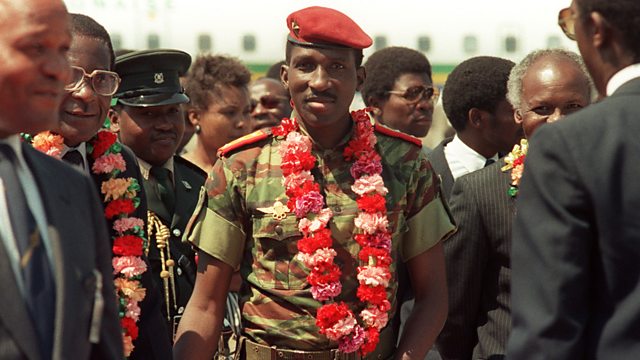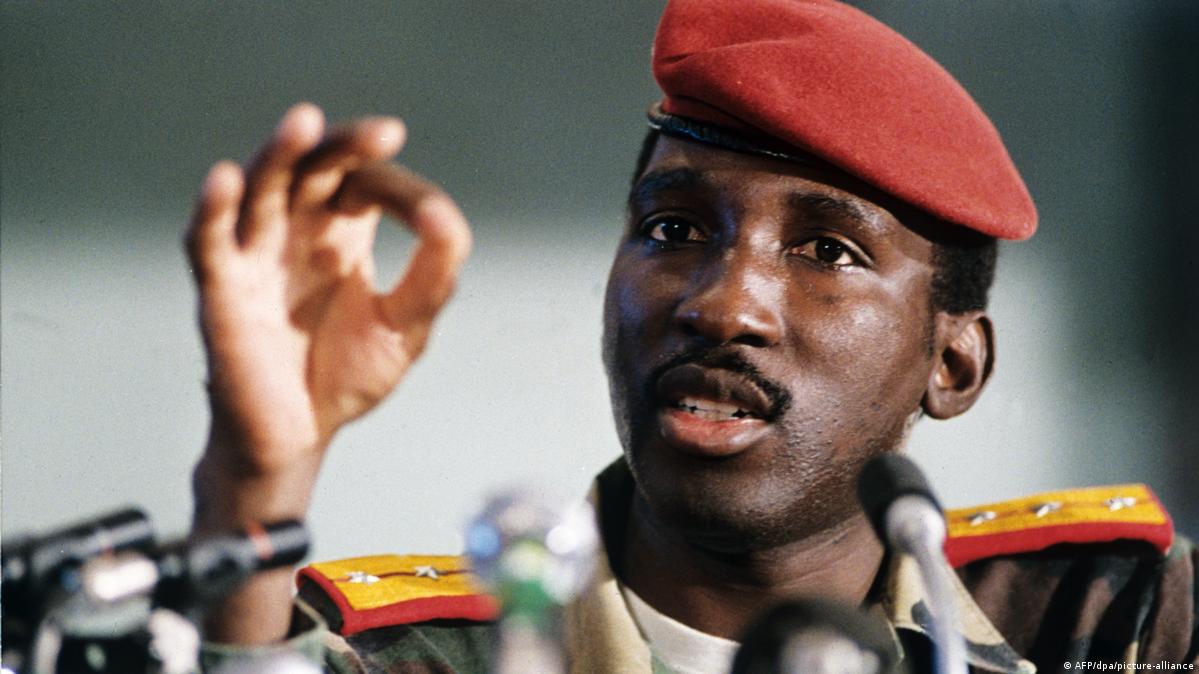
Thomas Sankara was the political administrator of Burkina Faso in the 1980s. He was born on the 21st of December, 1949, in a northern town in the Upper Volta (now known as Burkina Faso) of French West Africa called Yako.
He was born in a mixed family, to a Peul father and a Mossi mother. His background showed that the diversity of the Burkinabè people of the area was not a foreign concept.
Thomas Sankara witnessed the country’s independence from France in 1960 and the inhibitive and subversive nature of the administrations that ruled throughout the 1960s and 1970s in his younger years.

Sankara studied at the military academy of Antsirabe in Madagascar from 1970 to 1973. Here, he trained to become an army officer. In 1974, when he was still a young lieutenant in the Upper Volta army, he fought in a boundary war with Mali and came back home as a hero.
Following this, he went on to further his education in France and then Morocco. Here, he met Blaise Compaoré and some other civilian students from Upper Volta who eventually pioneered leftist associations in the country.
He commanded the Commando Training Center in the city of Pô in 1976 and during that period he encouraged his soldiers to help civilians with their work tasks, this helped him achieve some form of fame coupled with the fact that during community gatherings, he played the guitar with Pô Missiles, a local band.

He kept on adopting leftist politics throughout the 1970s. He also participated in a couple of leftist activities and organized the Communist Officers Group in the army.
The Military Committee for Reform and Military Progress (CMRPN) provided an opportunity for Thomas Sankara to serve as the Secretary of State for Information in 1981. They were a group of officers who had just come into power. He resigned from his post and denounced the CMRPM in April 1982.
Another military coup occurred and the Council for the People’s Safety got into power. They appointed Sankara as prime minister in 1983, however, he was dismissed just as fast and placed under house arrest, which led to a major revolt.

On August 4, 1983, Blaise Compaoré staged the “August Revolution,” a coup d’état against the Council for the People’s Safety. The new regime called itself the National Council for the Revolution (CNR) and made 34-year-old Thomas Sankara president.
While he was President, Sankara worked hard to end corruption, promote agriculture, prevent starvation, support the rights of women, and prioritize education and healthcare. He renamed the country ‘Burkina Faso,’ meaning, “the republic of honourable people.”
Thomas Sankara was killed with twelve other officials in a coup d’état instigated by Blaise Compaoré, a previous political ally on 15th October 1987. He was only 37 years old.